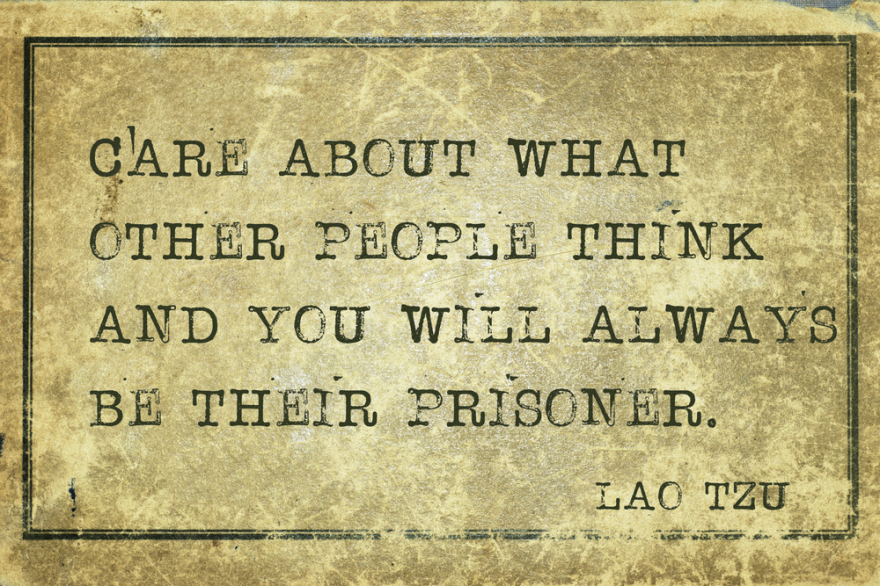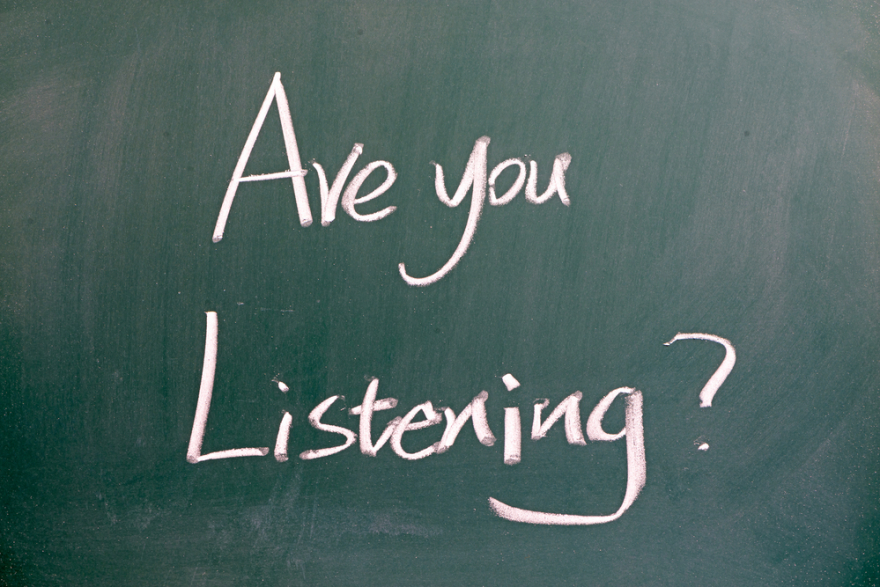|

Do You Care Too Much About What Others Think About You?
Rev. Dr. Kitty Boitnott, NBCT RScP
Heart-Centered Career Transition and Job Search Coach | Life Strategies & Stress Management Coach
Have you ever heard at work that someone was talking about you behind your back? Did you learn that someone was mischaracterizing something that you said? Or did someone take something that you said out of context and repeat it to make you look bad?
That has happened to us all, I bet. After all, people like to gossip. They fall into the trap of talking smack about their co-workers daily. They talk about their neighbors and even the people at church. I mean, no one seems to be off limits, right? Unfortunately, it appears to be baked into human nature. We talk about one another. And it isn't always complimentary.
When you find out that the gossip being spread around the office is about YOU, it hurts.

I remember one incident from when I was President of the VEA. A retiring staff member walked into my office, obviously angry, agitated, and frankly, "loaded for bear" as they say. He wanted to offer a few parting words for me and the Executive Director with whom he was also unhappy. He accused the ED of lying about something—I forget what. And while he didn’t call me a liar to my face, he did state that I had said something about a colleague and close friend of his with which he had a particular gripe.
Thankfully, I have a penchant for not getting caught up in the drama at the moment when faced with a confrontation like that. It’s like a part of my brain disengages when things like this happen, and I start to observe as a third party. I refuse to let myself get drawn into the confrontation. That allows me to stay calm. It's a defense mechanism, frankly. If I were to get fully engaged and let loose when I am angry--well, let's say, I might regret my words later. So, I close off that part of my brain in a moment of confrontation and observe.
As a result, I remember watching my ED on that occasion get red in the face, down to his collar, when he was called a liar. I knew he was anything but calm. In fact, he looked like he might explode at any moment.

He felt attacked-- because, let's face it, he was being attacked. And he felt ambushed. There had been no forewarning. But this staffer was looking for a major blow up with the two of us.
I took the situation in hand. I explained precisely what I had said about the man's colleague and friend (as opposed to what he was accusing me of having said). I clarified what I had said. And I explained WHY I had said it. And then I told him I guessed it was a good thing he was leaving the organization since he was so unhappy.
He was so taken aback by my calm demeanor and lack of defensiveness that he was immediately disarmed. While he backpedaled with me, it gave my Executive Director a moment to collect himself and come up with his own calm response.
These things happen.
I learned from my experience at the VEA (don’t ask me why I never learned it before) that whenever you have two or more individuals gathered together under one roof, you’re going to have conflict at one time or another. It just goes with the territory.
And it doesn’t only happen at work. It can occur at home with your spouse or partner. It can happen with a sibling or parent. Years ago, I had a disagreement with my dad. I don’t remember what the argument was about. I remember thinking it was silly and he was being unreasonable. But we were both convinced of the rightness of our positions. I remember that much. And I remember getting a letter from him about it. I lived 20 minutes away. But talking in person had started the argument, and I think he had tried to call me on the phone to clarify his point of view. I wasn't being convinced, however. So he mailed me A LETTER.
It wasn't a letter of apology. It was a letter of explanation. What he wanted was for me to understand his position better. Since I hadn’t been such a good listener while he had tried to TELL me his position in person and on the phone, he had resorted to writing me this letter. That way, I couldn't interrupt him or disagree with him.
I remember reading the letter with sudden clarity.
He wanted me to understand him. He didn’t feel that I had been listening to him. I am sure now, as I look back on it that he felt dismissed by my nonchalant attitude about something that he obviously cared a lot about. That was the reason for the letter.
The disagreement blew over pretty quickly after that. I stopped arguing with him and let it go. As I said, I don’t remember now, all these years later what it was even all about. But I do remember that the letter conveyed to me how important it was that I at listen--and respect--to his point of view, even if I was in total disagreement.

We are going to have disagreements throughout life even with those with whom we are closest. The question is, how much do you care when they disagree with you? Do you let their opinions override your own? Do you feel devastated or abandoned if someone disagrees with you about something important?
It seems to me that there is a fine line between choosing your own opinion over others and letting others dictate to you how they think you should think and feel. I let the argument with my father go. I didn't let his opinion override my own, however.
We need to draw that line with more distinction.
You have to be your own person. You need to stay true to your personal values and your own core beliefs. To compromise—even for those you care deeply about, much less strangers at work—is to compromise yourself. Don’t do that!
Learn to stay true to yourself. Try not to care so much about what others think about you or say about you. (I know that's easier to say than do.) But as long as you know you are doing your best, you need to care more about what you think than what others think or say about you.
Just remember that.
Until next time.
P. S.
Have you given a listen yet to my new Podcast, "Teachers in Transition?" If not, I invite you to listen on iTunes at https://podcasts.apple.com/us/podcast/teachers-in-transition/id1460021639 or on Stitcher at https://www.stitcher.com/s?eid=60271160.
I alternate each week with information about stress, stress relief and stress management with information and advice about job search strategies and making a career change. Last week's episode (Episode 7) was "4 Signs You Need to Change Careers."
Please listen, share, and subscribe and review. I would love to hear your feedback and questions. You can listen on iTunes and Stitcher. Look for this cover:

|